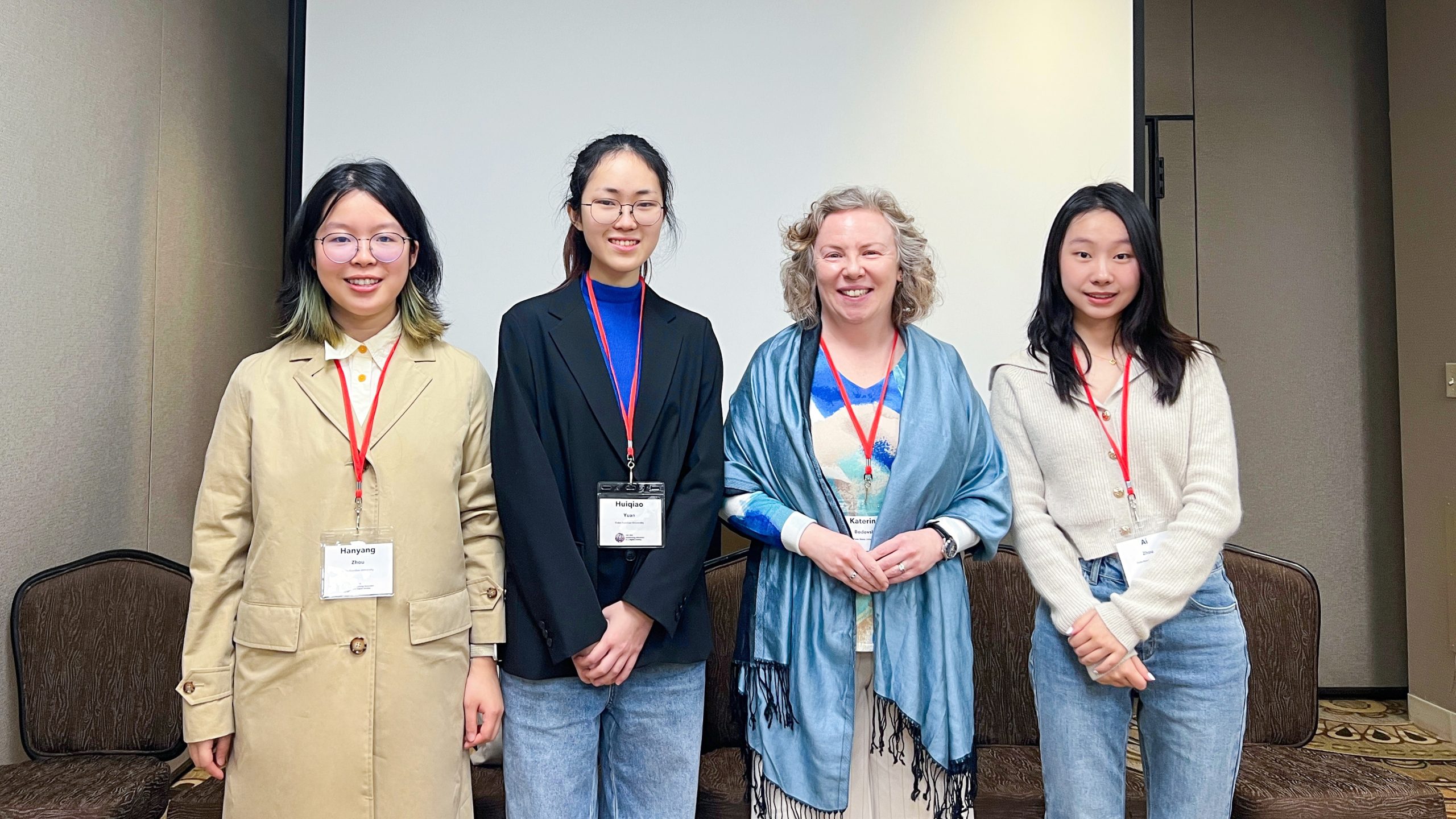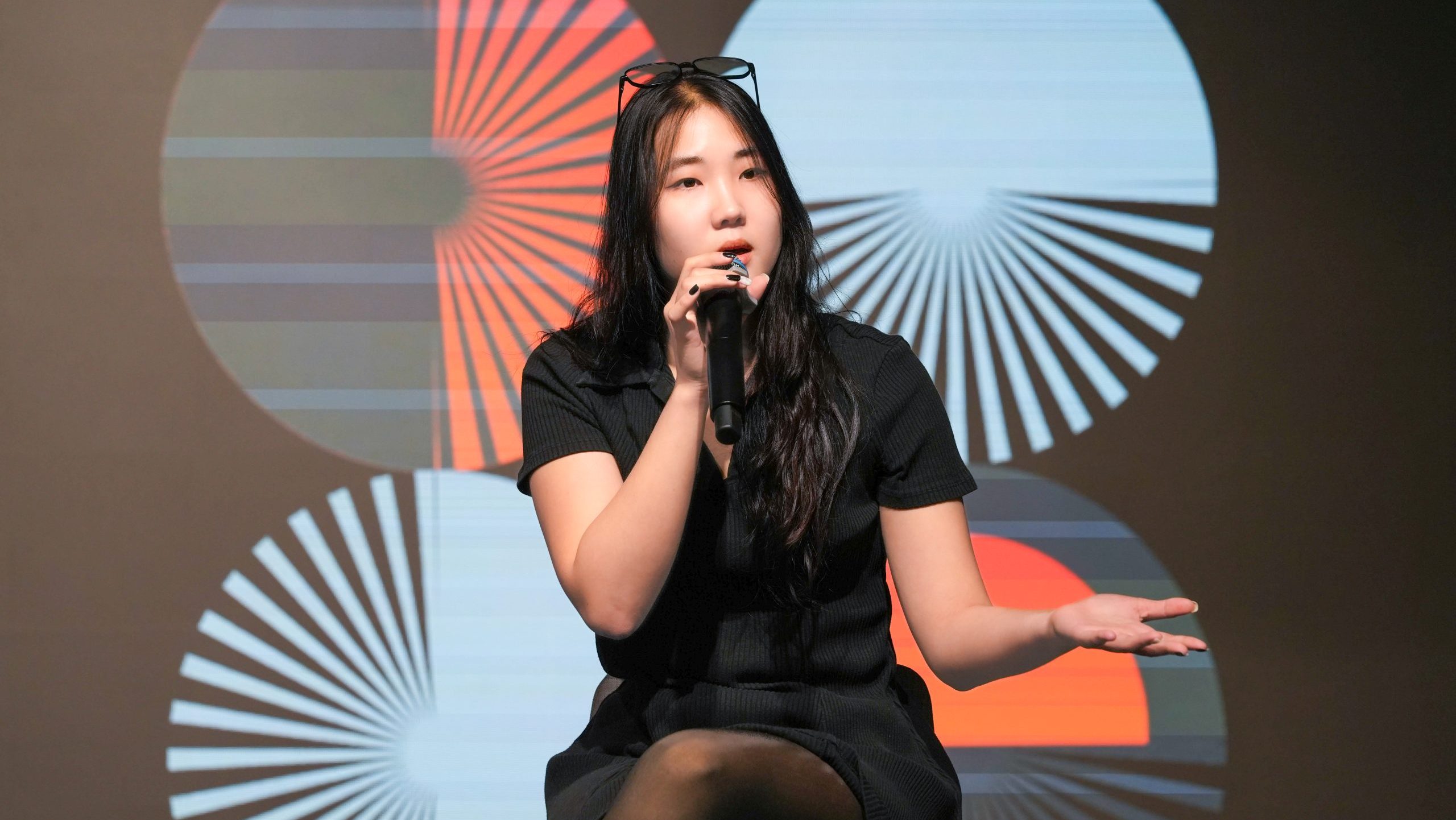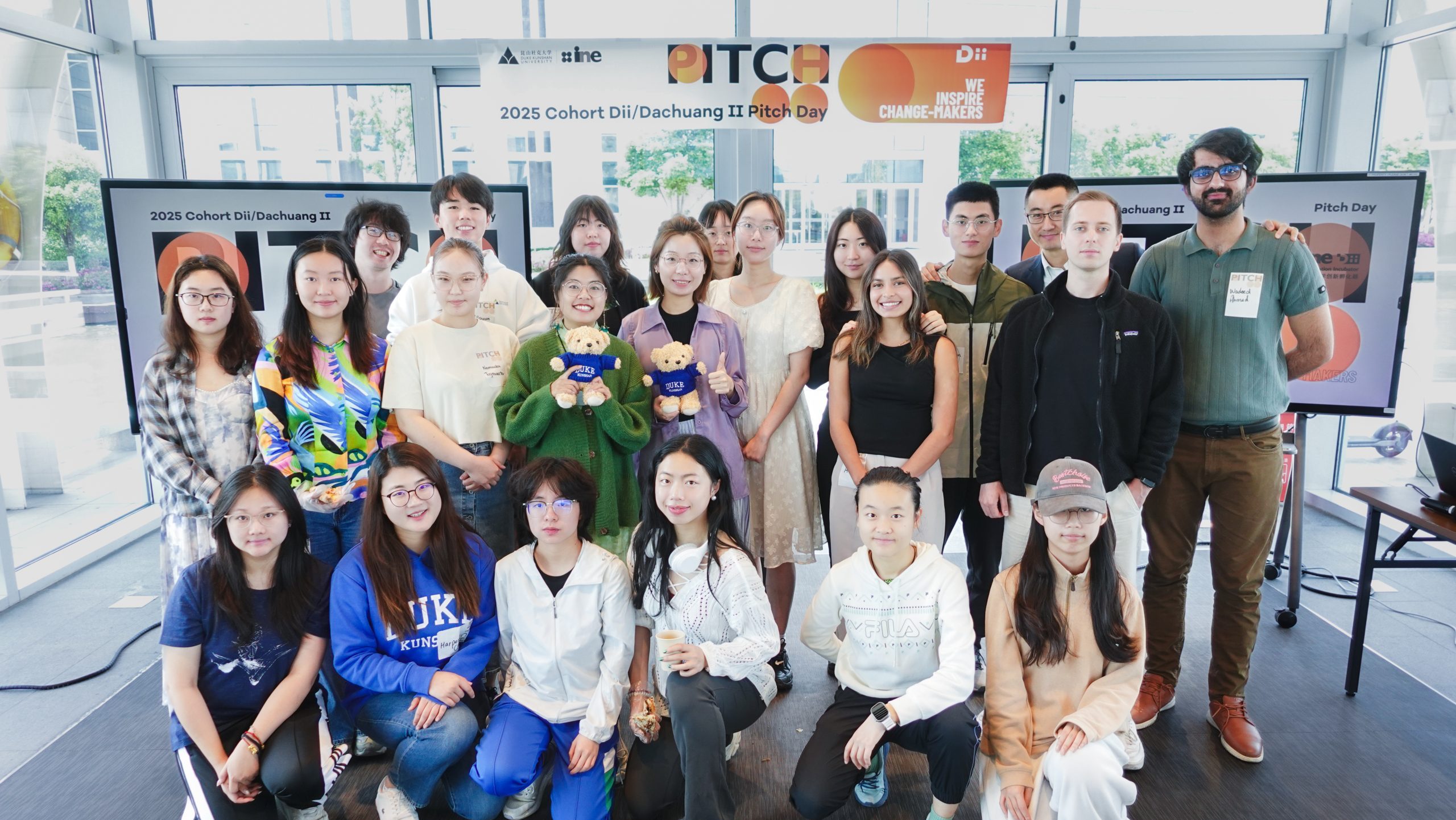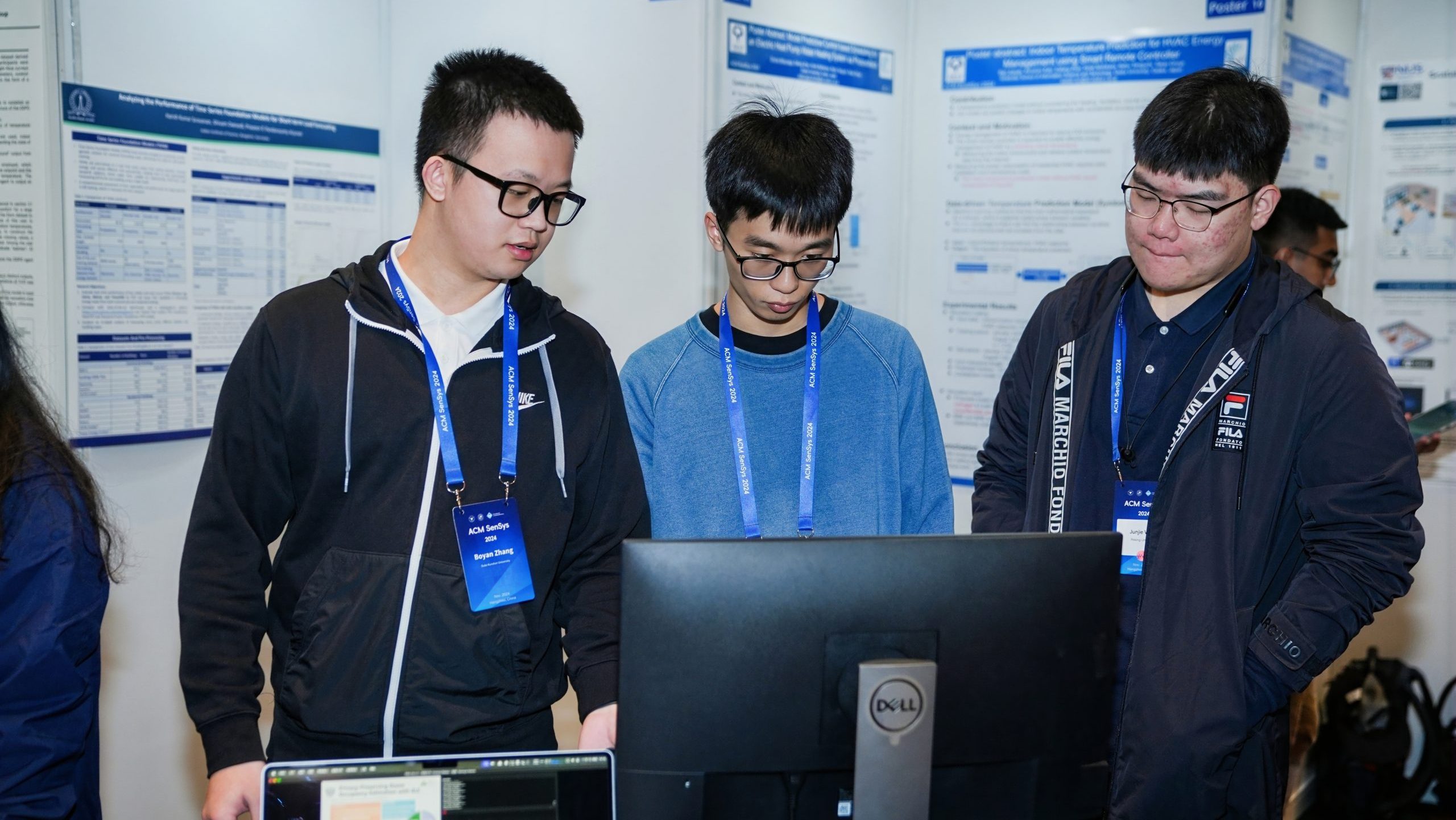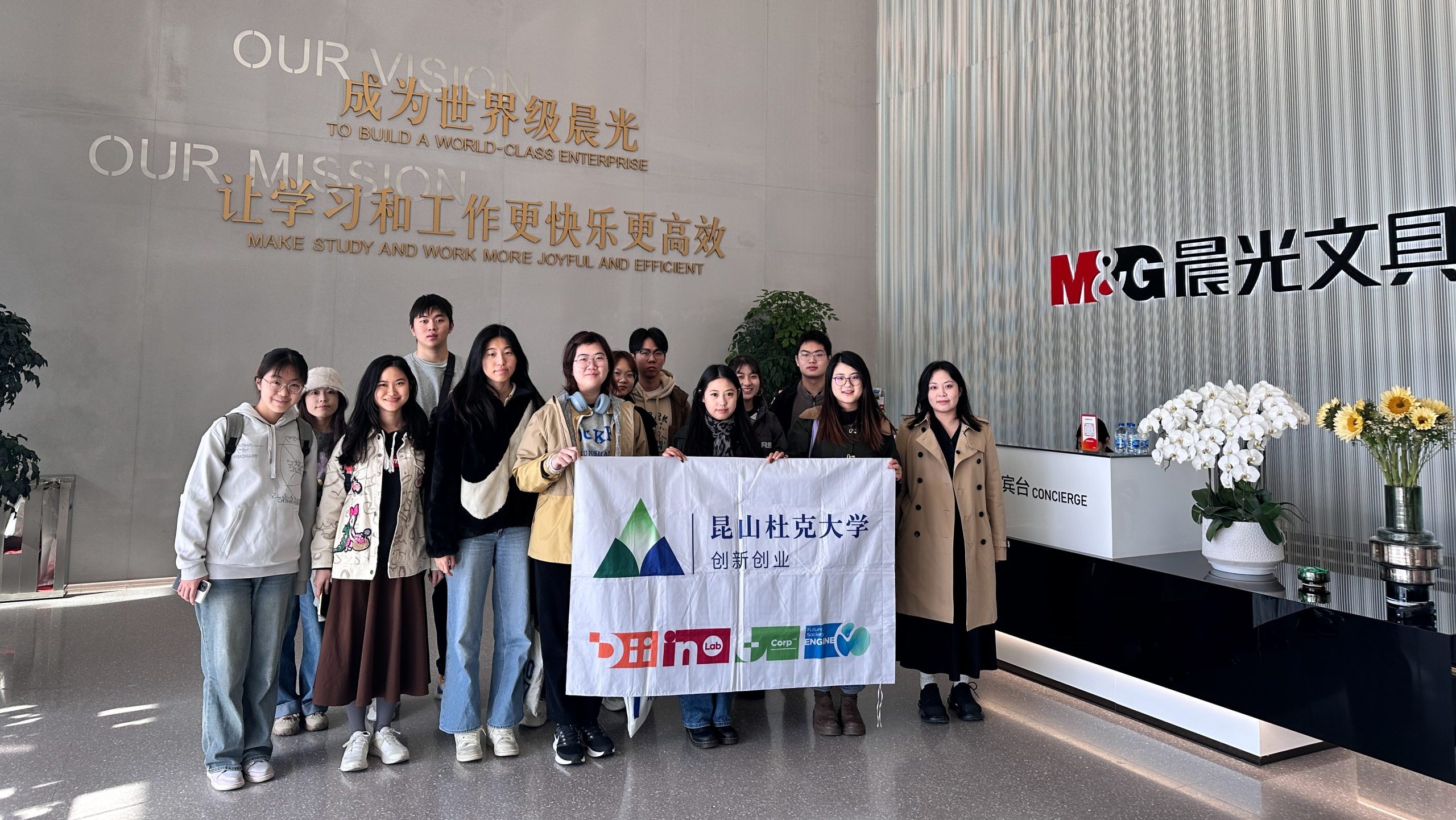U-Corp Lab is dedicated to establishing an integrated platform for industry, academia, and research based on cutting-edge disciplines, student interests, and corporate needs. Our cooperation between school and enterprise is built on the foundation of innovation and breakthrough insights generated through multi-party cooperation. As a continually evolving dynamic platform, U-Corp Lab attracts various organizations and companies every year, seeking and defining projects based on shared interests and needs to ensure that the selected project themes highly match the values, interests, and preponderant discipline of DKU students.
The Dream Sarter Plan
The cooperative partner for ‘The Dream Starter Plan’ is Xuying Elementary School, located in a remote area of Guoyang County, Bozhou, Anhui, China, situated at the junction of three counties. Due to its remote location, the school faces a relative scarcity of educational resources. In order to improve the educational environment, Principal Zifei Shen has actively introduced help through educational support activities to secure more high-quality educational resources for the students. In June of this year, with the assistance of Huochai Box, DKU Youngsters and Xuying Elementary School reached a long-term cooperation agreement. They jointly conducted support activities such as collecting Canadian International School Kunshan end-of-term supplies and donating love and received enthusiastic responses from both parties.
With the heat gradually dissipating, the recently concluded autumn recruitment for DKU Youngsters family eagerly embarked on a new round of ‘The Dream Starter Plan’ collaboratively planning activities for the new semester with Xuying Elementary School. When Principal Zifei Shen shared that the school faced challenges such as insufficient English education resources and low interest among students in learning English, aligning with the English teaching environment at DKU (Duke Kunshan University), a quick consensus was reached. It was decided to initiate online rural English public courses to illuminate the hope of English learning for the students at Xuying Elementary School and sow the seeds of language learning.
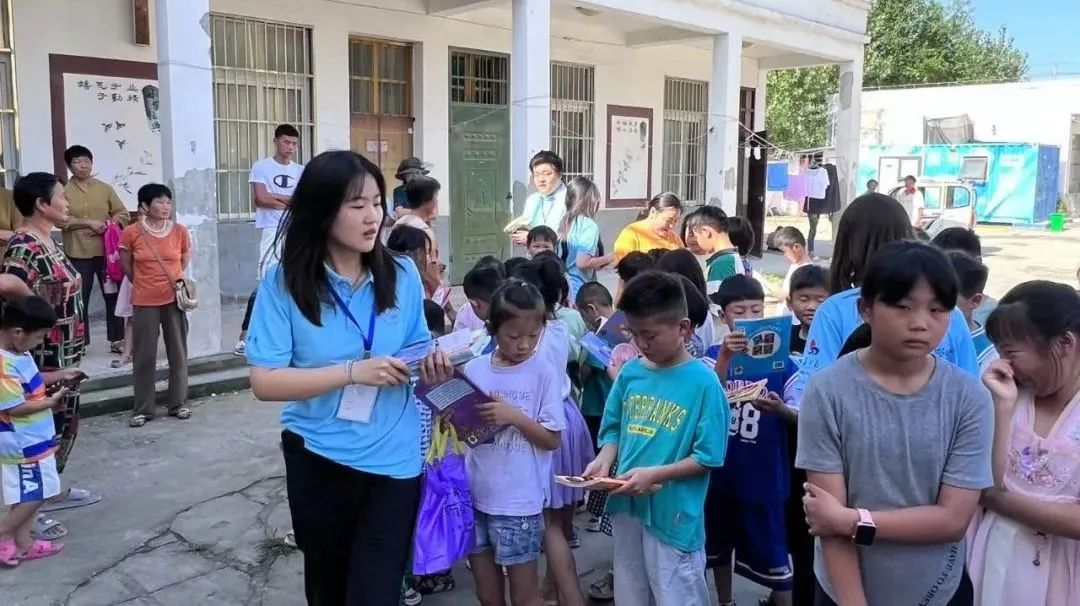
Shining is not the privilege of the sun
“K, K, Kite…” After two months of preparation, members of DKU Youngsters started their first online class on September 15th. Members Chirui Liang, Mingxuan Liu, and Chunxi Zhan began teaching the alphabet and phonics using a combination of images and text. This approach aimed to make learning enjoyable and visually engaging for the students at Xuying Elementary School.
Although the young learners have virtually no foundation in English, their enthusiasm overcame all difficulties. Before each class, the students prepared paper and pens to spell along with the teachers. They eagerly participated in answering when common words (such as apple and banana) appeared on the slides. Faced with pairs of eyes eager for knowledge and faces full of curiosity, members of DKU Youngsters did their best to respond to their needs. They provided as much help and encouragement as possible, nurturing the kid’s interest in learning English.
According to the teaching arrangement, the children needed to learn all 26 letters within two class sessions. However, due to their young age and zero foundation, the classroom often experienced distracted and overly active situations. This posed a challenge for Teacher Chunxi Zhan, who was experiencing remote teaching for the first time. Fortunately, the children’s enthusiasm for learning remained high, allowing her, with the assistance of another member, Chirui Liang, to smoothly transition from initial confusion to the correct rhythm. ‘Read along with me once more,’ she patiently guided the children, ensuring that the majority kept up with the course’s pace.
As for Chirui Liang, who has experience in volunteer teaching, he had his unique insights into rural education, ‘For children in areas with limited educational resources, I believe that more than learning ability and knowledge literacy, the most important thing is to enhance their confidence and broaden their horizons.’ In the classroom, he tirelessly worked to uplift the atmosphere with an encouraging tone. Through timely interaction and encouragement, he recovered the confidence of children who might be temporarily falling behind. At the end of the classes, Chirui Liang also reminded the teachers to collect and distribute post-class copying assignments in time. He also paid attention to the feedback from the children, adjusting his teaching methods and content based on their real responses, making the course more conducive to the children’s knowledge consolidation and observing every progress they made.
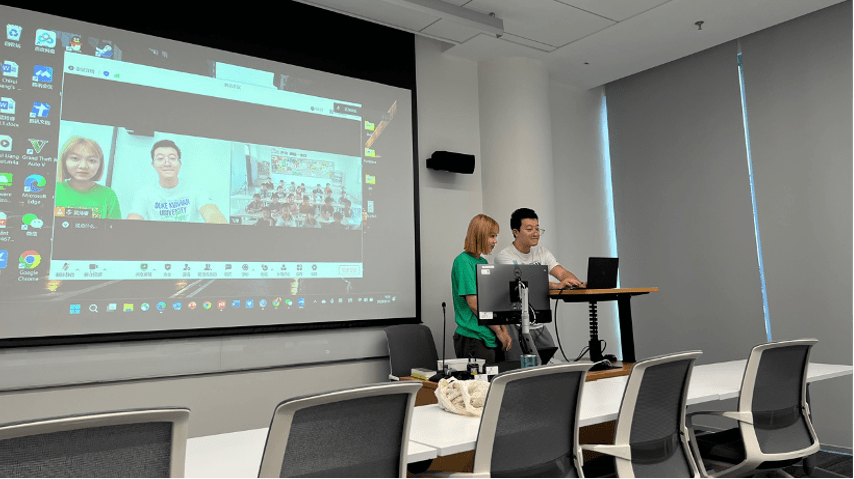
Listening to different voices is to set off for a better journey.
To improve subsequent courses, Ruyi Yao, a member of the publicity department, conducted a small interview with the young teachers from DKU Youngsters and Xuying Elementary School. They discovered many common issues, such as classroom discipline and course progress. Chirui Liang expressed some sighs, saying, ‘Sometimes, when we ask them to read words, they keep reading non-stop, unable to stop at all.’ When the situation became challenging to control, the class teacher needed to step in to help maintain order. At this point, the drawbacks of remote teaching gradually became apparent: limited school equipment made audio reception exceptionally difficult. Communication through the computer alone does not allow teachers to correct students’ pronunciation errors in a targeted manner, making it challenging to effectively maintain classroom discipline and the rhythm of reading aloud.
The third grade is a stage where children are full of energy and curiosity, and issues like distraction, playfulness, and lack of concentration are expected. In response to this, the lesson preparation team of DKU Youngsters was making corresponding adjustments. Through communication with the school, they proposed some suggestions to the school teachers, such as inserting some animations or interesting mini-games to attract the children’s attention. The members of the lesson preparation team believed that only by combining knowledge points with interest could they avoid making the course content appear too dull for the children.
The design of the course content was continuously optimized based on the children’s learning progress. Since the children had just started learning English and had not yet firmly established their understanding of the alphabet, delving into words in just two class sessions was somewhat difficult for them.
When faced with more complex words like ‘question’ or ‘teacher,’ the lack of a basic understanding of English word formation rules inevitably led to pronunciation issues. For example, they might wonder why the letter ‘o,’ previously learned, was not pronounced in ‘question.’ Additionally, the appearance of suffix letter combinations such as ‘tion,’ ‘ch,’ and ‘er,’ which had not been taught yet, confused the children. Continuing to input directly through words without integrating and exercising previous knowledge made it difficult to form long-term memory. Therefore, after communicating with Xuying Elementary School, the lesson preparation team planned to help the children deepen their memory based on understanding through learning phonetics and adding pre-class reviews.
In addition, there are issues with handwriting formats in the homework submitted by the children. ‘The handwritten and printed forms of the letters ‘a’ and ‘g’ are different, and we didn’t consider this during lesson preparation, resulting in some children writing in print in their homework,’ mentioned member Mingxuan Liu during the interview. To help the children better differentiate, she annotated and demonstrated both letters and words in handwriting on the slides during the second week of classes, assisting the students at Xuying Elementary School in mastering writing norms.
“Since the devices themselves won’t change, we can only adapt to them,” said Chirui Liang when discussing technical issues. He believed that what they could do was conduct tests in the meeting room beforehand and try to minimize complex interactions in course design to reduce the impact of hardware facilities on the course.
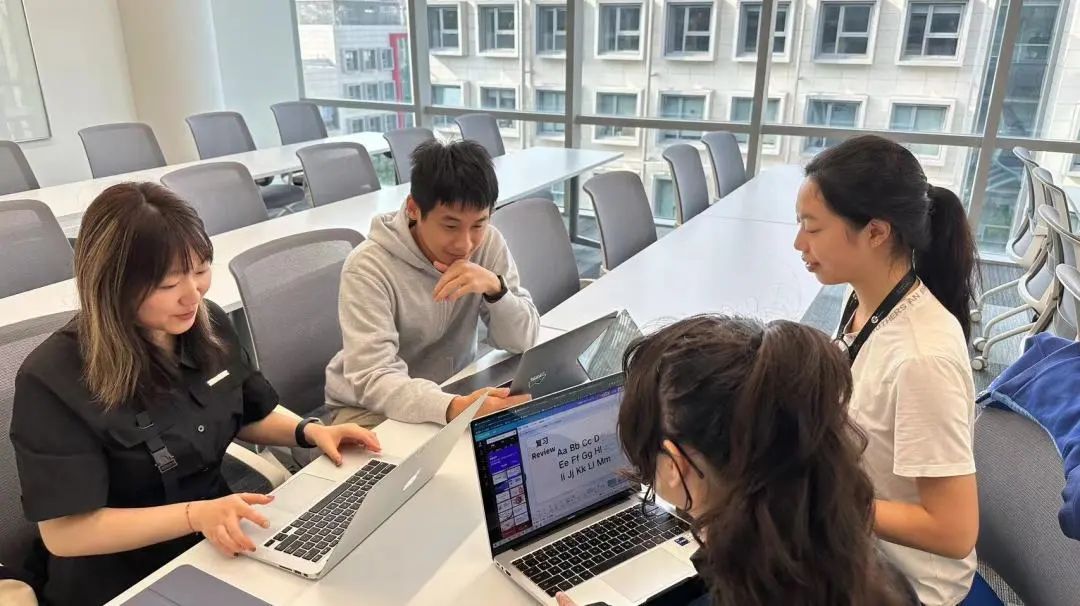
"Though small, the firefly aspires to be a beacon."
“I want them to understand that they are not confined to a small environment, and they have the ability to explore and create a better future,” said Chirui Liang when asked about the significance of this teaching support. Chunxi Zhan shared a similar feeling about these teaching experiences, stating, “English will provide children with a bridge to better explore more things and have the ability to see a broader world.” Mingxuan Liu’s experience was more direct. She admitted that despite not having a professional educational background, seeing the children drawing alongside her on paper brought her deep satisfaction and a sense of accomplishment.
The value of education is not just the transmission of knowledge and solving problems; it’s more like one tree shaking another, one cloud pushing another. Our wish is to bring hope and light to each bright pair of eyes. Public welfare education is the spontaneous combustion of love and kindness, and the sparks it generates, even though they might be tiny, are bound to be warm.
As the cheerful bell signaling the end of the class rang, students gradually left to attend the next session. However, one little girl continued to stand in front of the screen, waving to say goodbye to us for a long time. This scene deeply touched the hearts of every member of DKU Youngsters, making them realize that it was these innocent and sincere smiles that propelled DKU Youngsters forward.
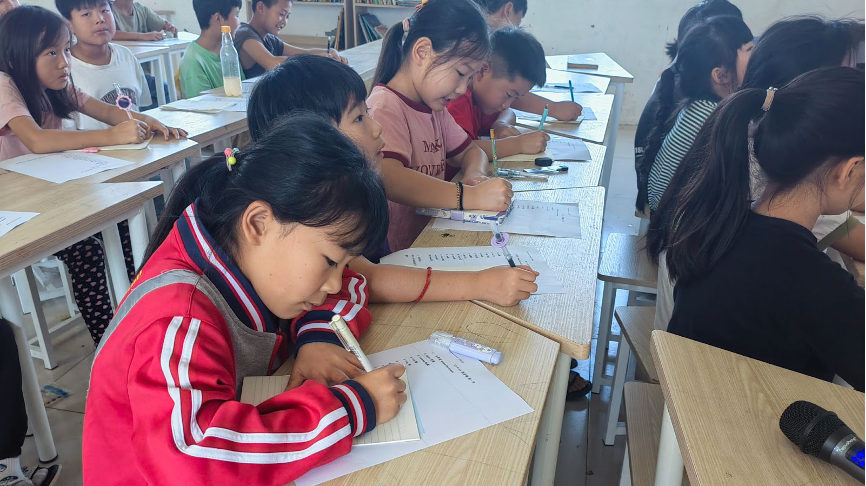
With the last glow of a firefly illuminating a corner of the heart, with the flame of public welfare igniting the light of hope, members of DKU Youngsters gather with love and enthusiasm to form a large hand of charity. Across mountains and seas, holding the hands of the children, with the warmth of the soul colliding, writing down innocent letters on paper, igniting sparks on dreams, one by one.

